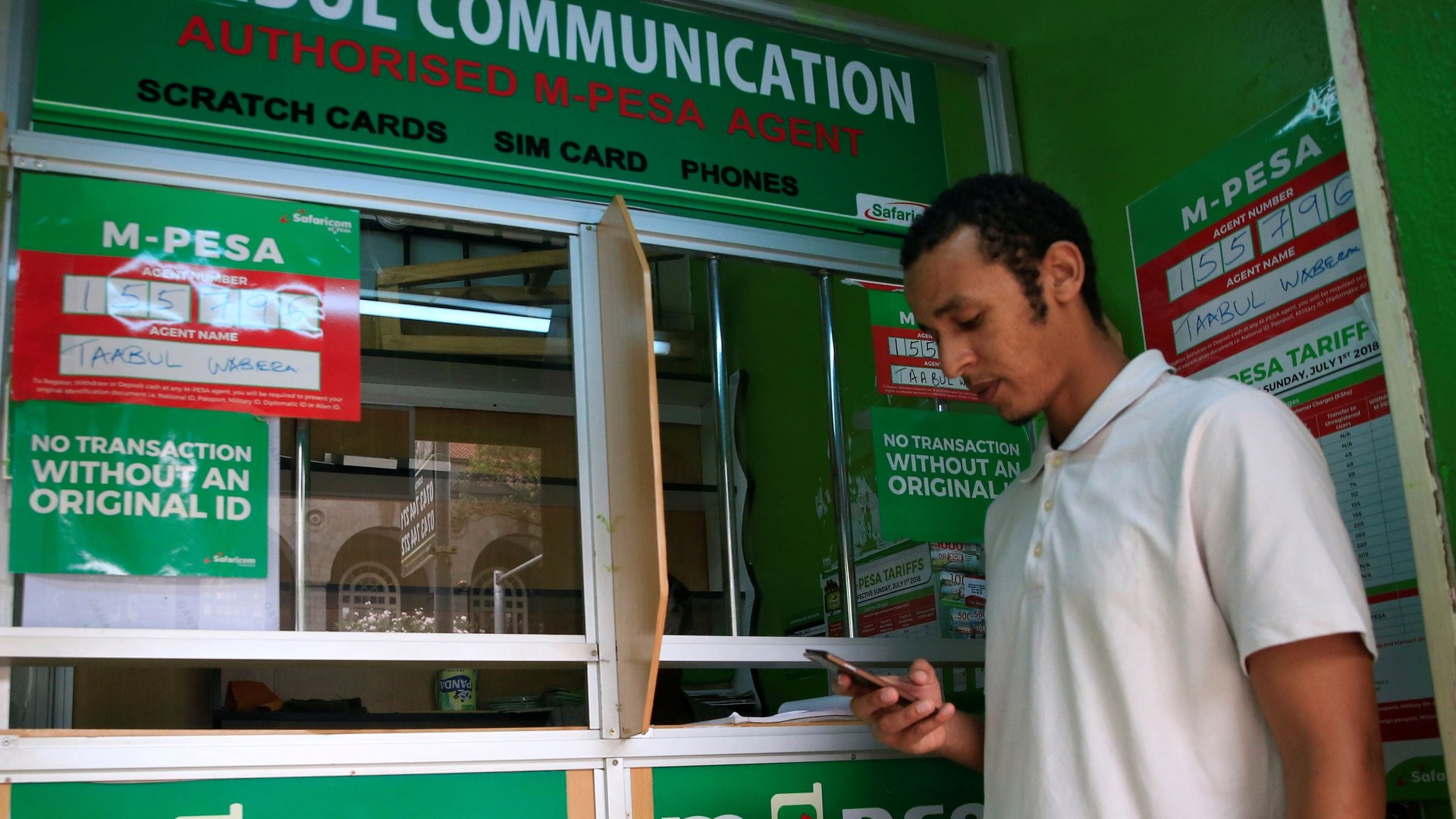Kenyans have started paying more for internet, SMS and calls after a tax hike
Calling, texting, and using the internet is becoming expensive in Kenya.


Calling, texting, and using the internet is becoming expensive in Kenya.
Starting on Thursday (Oct. 18), Kenya’s biggest telecoms company Safaricom hiked prices following the approval of a series of new government taxes. Last month, president Uhuru Kenyatta signed a new finance bill aimed at increasing levies on key sectors as a way to raise funds and narrow budget-deficit targets that could endanger a deal with the International Monetary Fund.
The law increased the excise duty tax applicable on voice, SMS and data services from 10% to 15%—in addition to the prevailing value-added tax applicable to mobile services at the rate of 16%. The government also hiked duty fees for mobile money transfer services from 10% to 12%. Safaricom said it is revising its tariffs based on these changes, increasing prices for voice calls and data by 30 cents ($0.0029) and texts by 10 cents. A 15% levy will also be reflected in its home and office internet plans.
The new taxes have been controversial in Kenya: while the government seeks to keep its spending plan on track, citizens say the government is forcing them to dig deeper into their pockets even as graft remains persistent. In recent months, a series of high-profile prosecutions have shown officials allegedly abusing their offices, conspiring to steal public funds, and filing fraudulent compensation claims for land use.
Kenya joins some other African countries including neighbor Uganda, Zambia and Zimbabwe who have introduced or raised taxes on mobile internet or money services in order to raise revenue.
An initial proposal to introduce a 16% value-added tax on all petroleum products drew protests from across the country, including from drivers of e-hailing services. To quell the public outcry, Kenyatta slashed the tax on fuel to 8%.
Safaricom CEO Bob Collymore said they “regret the impact” these additional taxes will have on their customers, and what it will mean for the “remarkable gains” made in mobile and internet penetration. As a dominant operator with diverse and innovative interests, the company controls almost 30 million out of the 45.5 million mobile phone subscribers in Kenya.
Even with the rise of over-the-top services such as WhatsApp, traditional mobile SMS and phone calls have experienced an upward trend among Safaricom customers in recent years. The company recorded a total of 9.1 billion minutes in the quarter ending June, up from 8.4 billion minutes, according to the Communications Authority of Kenya. Its SMS traffic also increased to 63.9 billion messages during financial year 2017/18 from 53.9 billion reported in the previous financial year.
Sign up to the Quartz Africa Weekly Brief here for news and analysis on African business, tech and innovation in your inbox